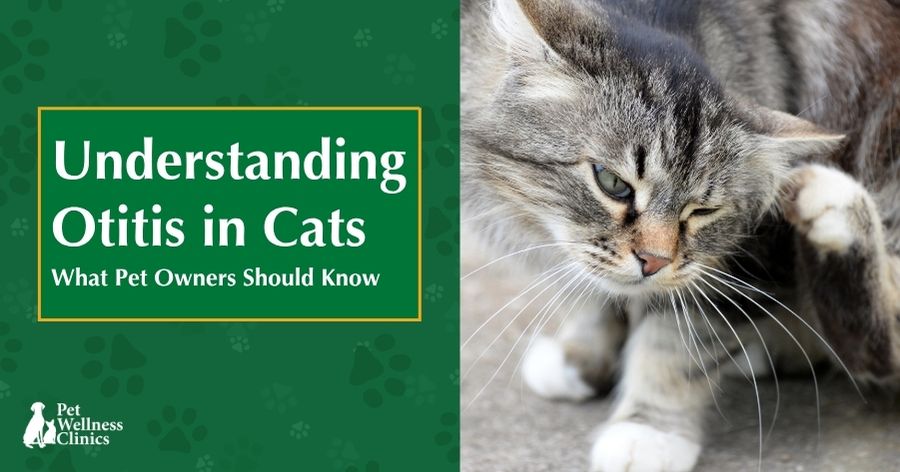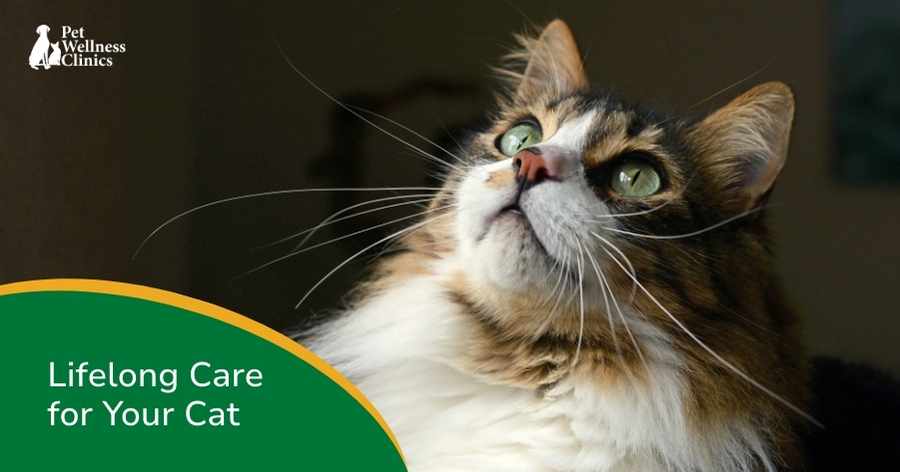
Ear issues aren’t just a dog problem—many cats also suffer from ear inflammation or infection, a condition known as otitis. While less common in cats than in dogs, otitis can be just as painful and potentially serious if left untreated.
At Pet Wellness Clinics, we’re here to help you better understand your cat’s health so you can keep them purring—and pain-free. Here’s what to know about feline otitis, including the signs to watch for and how we treat it.
Otitis refers to inflammation in one or both ears. It can be acute or chronic, and ranges from minor irritation to deeper infections that affect hearing and balance. Depending on the part of the ear affected, your veterinarian may diagnose:
Feline otitis can stem from several different causes, including:
Indoor cats can still develop otitis, particularly if allergies or underlying health conditions are present.
Some cat breeds are more prone to otitis, usually due to the shape of their ears, genetic predisposition to skin issues, or a tendency toward certain conditions like allergies or polyps. Cat breeds more likely to experience ear inflammation or infection include:
Cats often hide discomfort, so it's important to watch closely for subtle signs. These may include:
If your cat shows any of these symptoms, call us at (317) 516-5921. Prompt care is key to preventing complications or chronic issues.
You can help protect your cat’s ear health by:
When you bring your cat to Pet Wellness Clinics, our veterinarians will gently examine their ears and may use an otoscope to look deep into the ear canal. If infection or parasites are suspected, we’ll take samples to examine under a microscope to pinpoint the cause.
Treatment for your cat may include:
At Pet Wellness Clinics in Indianapolis, we understand that cats are masters of hiding discomfort—but we’re here to help uncover and treat problems early, so your feline friend stays comfortable, curious, and cuddly.
Think your cat might have an ear issue? Call us at (317) 516-5921 or schedule an appointment today.


